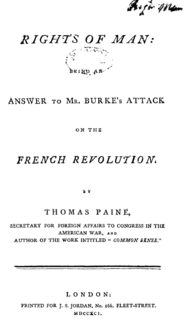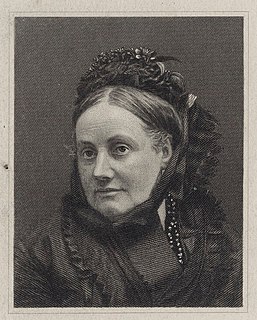
The Metropolitan Association for Befriending Young Servants (MABYS) was a voluntary organisation of middle- and upper-class women, which aimed to support poor young women and girls in London and encourage them to become domestic servants.

The Metropolitan Association for Befriending Young Servants (MABYS) was a voluntary organisation of middle- and upper-class women, which aimed to support poor young women and girls in London and encourage them to become domestic servants.
The Oxford Dictionary of National Biography says that this organisation was founded by Caroline Emelia Stephen and her cousin. [1] The same source says it was founded by Jane Nassau Senior, Britain's first female civil servant, [2] and social reformer Henrietta Barnett in 1875.
The organisation aimed to support poor young women and girls in London, prevent girls from becoming prostitutes, criminals or alcoholics, and provide a steady supply of domestic servants. [3] [4] [5]
The Poor Law had led to large numbers of children being taken from their families by the authorities and raised in workhouses and Poor Law schools. Children were discharged from these institutions at age 14 to survive as best they could; [6] this practice led to severe social problems, as unqualified children turned to crime and prostitution. [6] Until the formation of MABYS, the only formal support given to those discharged from workhouses was the offer of subsidised transport to Canada or Australia. [6]
MABYS aimed to monitor and support girls discharged from residential institutions, in an effort to find them employment as domestic servants and discourage them from becoming prostitutes or alcoholics. [5] MABYS volunteers would visit and befriend girls discharged from Poor Law care, providing advice and assistance with finding housing and new employment where necessary. [3] [5] By the 1880s MABYS had 25 branch offices and 17 associated care homes, [7] and by the 1890s MABYS had over 1,000 volunteers, [8] and was processing applications for employment from over 7,000 girls per year, [4] of whom over 5,000 per year were successfully placed, [3] around 25% of whom came from London's Poor Law schools. [7] [n 1]
MABYS strongly discouraged contact between girls in their care and their relatives, amid concerns that children would acquire bad habits from their families, [10] or become unsettled by relatives, who would often attempt to remove the children. [11] Jane Nassau Senior, with the support of Thomas John Barnardo, had lobbied for MABYS, and similar bodies, to be automatically made guardians until the age of 20 for any child who had been in Poor Law care for over five years. [11]
MABYS grew rapidly. In 1887 the Association opened a residential training centre for feeble-minded girls, aiming to find them appropriate employment, and by 1896 the Association was operating lodging-houses and training centres for unemployed women, and had expanded its remit to cover girls coming to London in search of work and girls from industrial schools.
Following social changes in the wake of the First World War MABYS went into decline, although it formally remained in existence until at least 1940. [12] In 1948 the National Assistance Act abolished the Poor Law, and responsibility for education and training was brought under the control of the state.

The English Poor Laws were a system of poor relief in England and Wales that developed out of the codification of late-medieval and Tudor-era laws in 1587–1598. The system continued until the modern welfare state emerged after the Second World War.
Clara Collet was an economist and British civil servant. She was one of the first women graduates from the University of London and was pivotal in many reforms which greatly improved working conditions and pay for women during the early part of the twentieth century. She is also noted for the collection of statistical and descriptive evidence on the life of working women and poor people in London and elsewhere in England.

Rights of Man (1791), a book by Thomas Paine, including 31 articles, posits that popular political revolution is permissible when a government does not safeguard the natural rights of its people. Using these points as a base it defends the French Revolution against Edmund Burke's attack in Reflections on the Revolution in France (1790).

Magdalene asylums, also known as Magdalene laundries, were initially Protestant but later mostly Roman Catholic institutions that operated from the 18th to the late 20th centuries, ostensibly to house "fallen women". The term implied female sexual promiscuity or work in prostitution, young women who became pregnant outside of marriage, or young girls and teenagers who did not have familial support. They were required to work without pay apart from meagre food provisions, while the institutions operated large commercial laundries, serving customers outside their bases.

In Britain, a workhouse was a total institution where those unable to support themselves financially were offered accommodation and employment. The earliest known use of the term workhouse is from 1631, in an account by the mayor of Abingdon reporting that "we have erected wthn [sic] our borough a workhouse to set poorer people to work".

A domestic worker is a person who works within the scope of a residence. The term "domestic service" applies to the equivalent occupational category. In traditional English contexts, such a person was said to be "in service". Domestic workers perform a variety of household services for an individual, from providing cleaning and household maintenance, or cooking, laundry and ironing, or care for children and elderly dependents, and other household errands.

Dame Henrietta Octavia Weston Barnett, DBE was an English social reformer, educationist, and author. She and her husband, Samuel Augustus Barnett, founded the first "University Settlement" at Toynbee Hall in 1884. They also worked to establish the model Hampstead Garden Suburb in the early 20th century.
As in other countries, feminism in the United Kingdom seeks to establish political, social, and economic equality for women. The history of feminism in Britain dates to the very beginnings of feminism itself, as many of the earliest feminist writers and activists—such as Mary Wollstonecraft, Barbara Bodichon, and Lydia Becker—were British.

Josephine Elizabeth Butler was an English feminist and social reformer in the Victorian era. She campaigned for women's suffrage, the right of women to better education, the end of coverture in British law, the abolition of child prostitution, and an end to human trafficking of young women and children into European prostitution.
Workfare is a governmental plan under which welfare recipients are required to accept public-service jobs or to participate in job training. Many countries around the world have adopted workfare to reduce poverty among able-bodied adults, however their approaches to execution vary. The United States and United Kingdom are two such countries utilizing workfare, albeit with different backgrounds.

In English and British history, poor relief refers to government and ecclesiastical action to relieve poverty. Over the centuries, various authorities have needed to decide whose poverty deserves relief and also who should bear the cost of helping the poor. Alongside ever-changing attitudes towards poverty, many methods have been attempted to answer these questions. Since the early 16th century legislation on poverty enacted by the English Parliament, poor relief has developed from being little more than a systematic means of punishment into a complex system of government-funded support and protection, especially following the creation in the 1940s of the welfare state.
Maria Susan Rye,, was a social reformer and a promoter of emigration from England, especially of young women living in Liverpool workhouses, to the colonies of the British Empire, especially Canada.
A House of Industry was established in Dublin by an act of parliament in 1703, "for the employment and maintaining the poor thereof." In 1729 the House of Industry became a foundling hospital as well. It was located at the present site of St. James's Hospital, James's Street, and included 14 acres (57,000 m2) of land. The upkeep of this institution was paid for through taxes levied on sedan chairs, hackney coaches and a House Tax applied throughout the city. After the tax was lifted on 5 January 1823, the workhouse was mainly supported through grants from the Irish Parliament.
In England, social care is defined as the provision of social work, personal care, protection or social support services to children or adults in need or at risk, or adults with needs arising from illness, disability, old age or poverty. The main legal definitions flow from the National Health Service and Community Care Act 1990, with other provisions covering disability and responsibilities to informal carers. That provision may have one or more of the following aims: to protect people who use care services from abuse or neglect, to prevent deterioration of or promote physical or mental health, to promote independence and social inclusion, to improve opportunities and life chances, to strengthen families and to protect human rights in relation to people's social needs.

Jane Nassau Senior (1828–1877) was Britain's first female civil servant, and a philanthropist. She was co-founder of the Metropolitan Association for Befriending Young Servants (MABYS).
Surplus women is a phrase coined during the Industrial Revolution referring to a perceived excess of unmarried women in Britain.
Like most cities and towns across Scotland, Aberdeen and its twin city of Old Aberdeen had Poorhouses to complement the provision for the poor and need provided by the Church, the merchants and the Trades. A Poor Hospital was founded in 1741. This replaced the "Correction House" dating from the 1636/7

History of women in the United Kingdom covers the social, cultural and political roles of women in Britain over the last two millennia.
Workhouse infirmaries were established in the nineteenth century in England. They developed from the Workhouse and were run under the Poor law regime.

Catharine Tait was a British philanthropist.